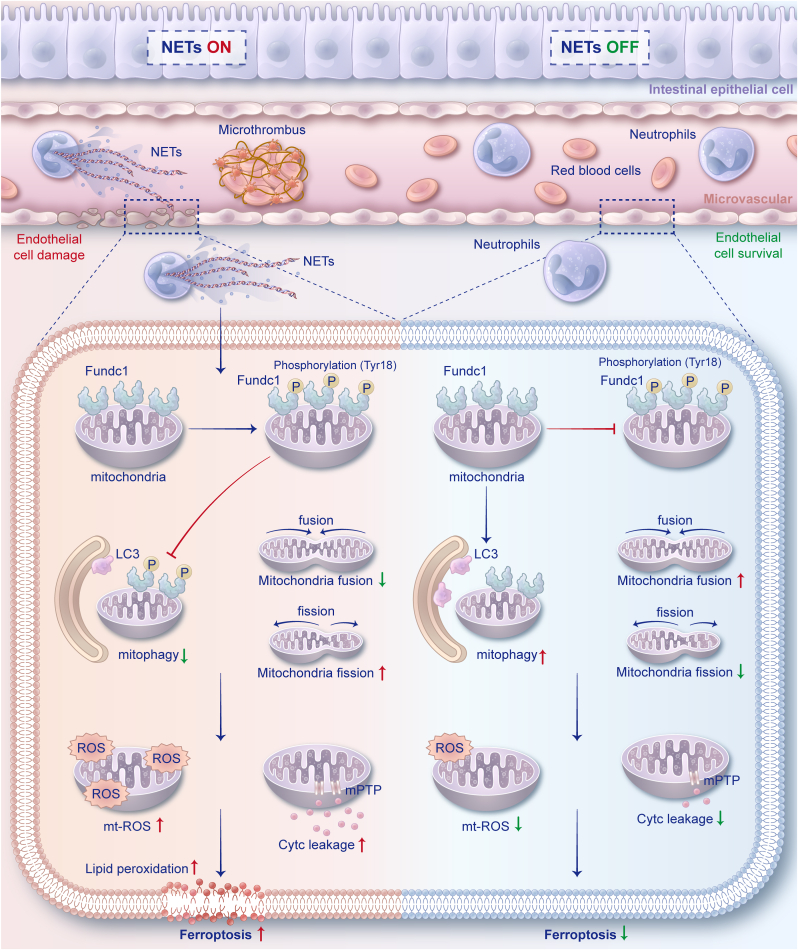Fig. 9.
During intestinal ischemia‒reperfusion, neutrophils become activated and infiltrate the intestinal microcirculation by releasing NETs. The presence of NETs in microvessels affects endothelial cells, resulting in the phosphorylation of Fundc1 at Tyr18, which inhibits mitophagy function. Consequently, damaged mitochondria are not cleared promptly, leading to mitochondrial dysfunction, which is characterized by the accumulation of mitochondrial ROS and by Cytc leakage. The accumulation of intracellular and mitochondrial ROS triggers lipid peroxidation, which activates ferroptosis in endothelial cells, ultimately causing microvascular damage and dysfunction. The clearance of NETs has been shown to effectively maintain mitophagy levels in endothelial cells, leading to enhanced mitochondrial quality control and a reduction in mitochondrial dysfunction. As a result, ROS generation is mitigated, cell ferroptosis is prevented, and intestinal microvascular function is preserved.

